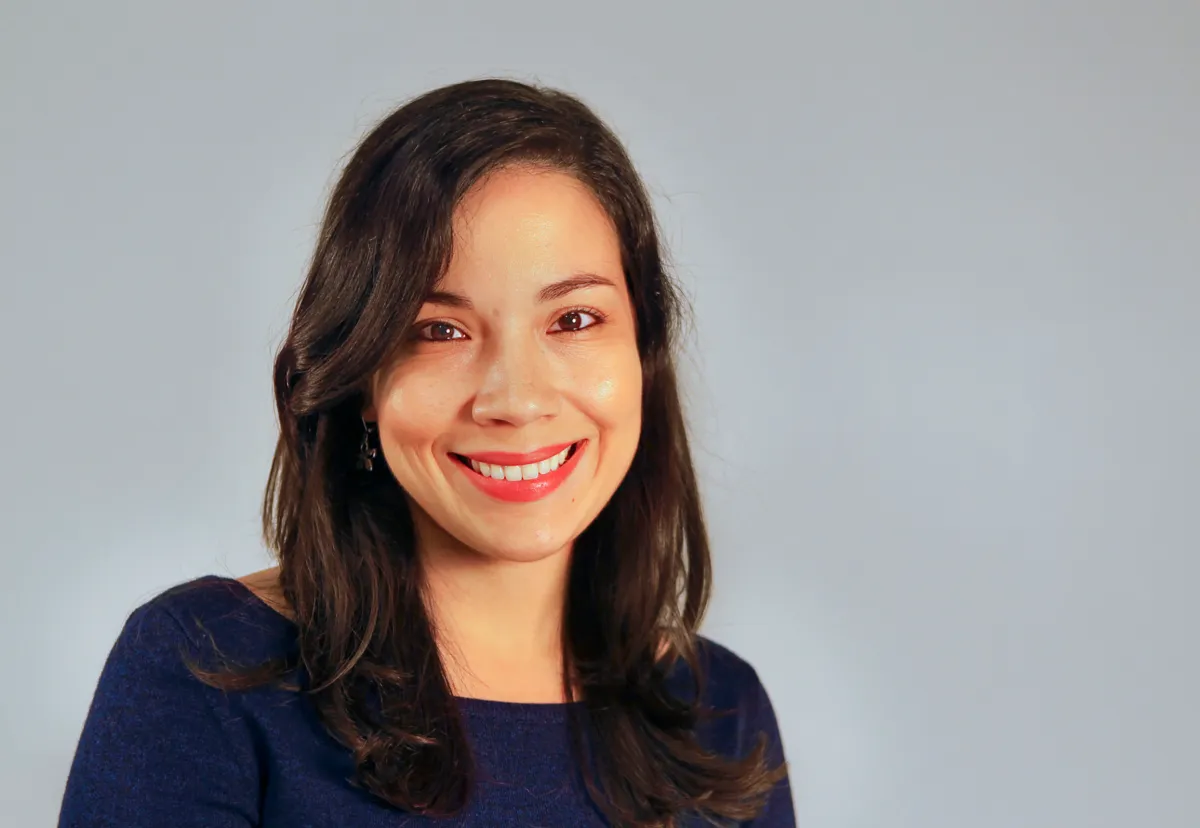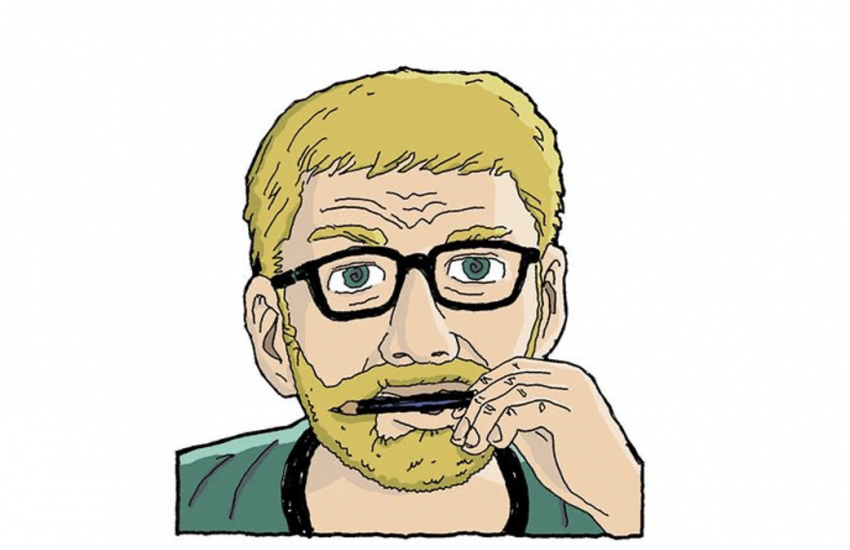How Laura Morel is helping to uncover the truth behind anti-abortion pregnancy centers
Women with unwanted pregnancies face one of the most challenging decisions of their lives — being able to explore their options in a non-judgmental, medical setting is therefore crucial in ensuring that women can make these decisions armed with as much knowledge and education as possible.
Anti-abortion pregnancy centers are taking away this option from women nationwide. These centers operate with the intention of discouraging people from receiving abortion treatment — doing so by providing misleading or false information causing delays in access to abortion. Often, these centers are strategically placed nearby abortion clinics, sometimes even copying their name or logo to confuse patients.
Anti-abortion pregnancy centers have been open throughout the United States for decades. However, upon the overturn of Roe v Wade, more people have begun to take notice of them and understand what they really offer. And, unfortunately, due to state regulations, many of these centers can be open without being formally licensed as a clinic, according to Reveal News.
Laura Morel, a reporter for Reveal News, has taken a deep dive into understanding pregnancy centers, what they do and don’t offer, as well as the lack of state regulation behind these clinics.
Storybench spoke with Morel over Zoom to hear more about her findings.
This interview has been edited for length and clarity.
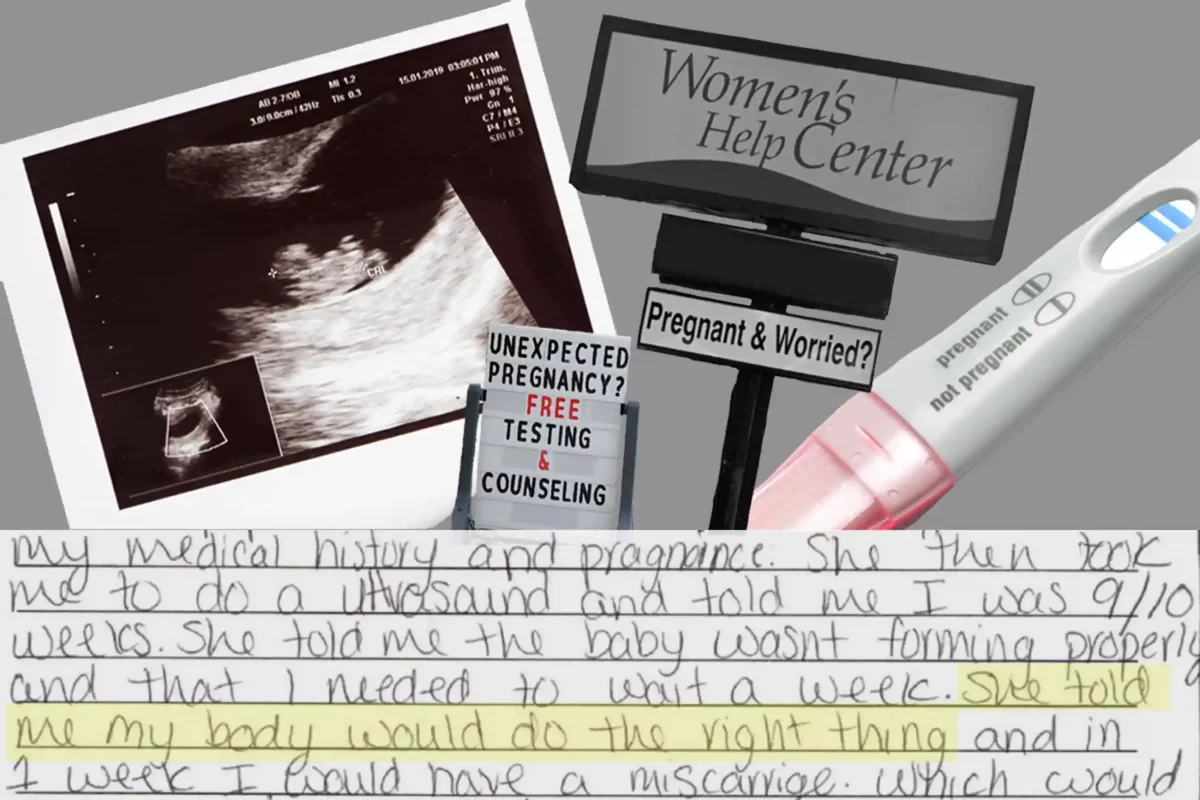
What is your current position and background in this field?
I went to college in Miami, Florida, for an associate’s degree in Journalism and got my bachelor’s degree from Emerson College in 2011. After graduating, I moved back to Florida and worked at the Bradenton Herald newspaper in Southwest Florida before working at the Tampa Bay Times for about seven years. I first covered breaking news, police departments, and criminal courts before starting with Reveal, where I have been working since 2018. I covered immigration for about three years and then in late 2021 decided to focus more on reproductive health. I was intrigued by this topic, it was new to me and seemed like a good opportunity for learning something new, so I volunteered to take it on. I really loved and enjoyed covering it, so now reproductive health is mainly what I cover.
Were you familiar with anti-abortion pregnancy centers prior to starting to research this topic?
I am based in Florida and being from here, I had heard of pregnancy centers and had seen them driving by or seen the billboard promotions. I was aware of them and had read a couple of articles about the services they do or don’t provide and some of their strategies. I had that familiarity with it, but it wasn’t until last year that I really started to dive deeper and look closer at the issue after the Dobbs case was overturned.
“Providers have seen the advantages of using ultrasounds as a way to get women in the door as a way to convince people to keep their pregnancies, but while this is happening, regulation isn’t keeping up.”
What is it like being in a state with such strict restrictions while writing about this topic?
I think that the opportunity that there is to do this type of reporting in Florida is a great advantage because we have great public record laws. Florida has really public record laws, at least so far, and it gives us the opportunity to file record requests and get responsive records that can help us understand the underlying issues that might be harder to get at in other states with more restrictive open record laws. I decided that filing for, what would seem like basic record requests, and using that through this lens of reproductive health. Like what are the records that I could be asking for that could give us an inside look of what is going on in Florida and in other states? I think that’s the opportunity that I’ve had in this state.
When researching how did you come in contact with the victims of these clinics who are mentioned in your article?
It started through records actually. I had placed a bunch of record requests related to pregnancy centers with the Florida department of health. Within one of those batches of records that I got, I saw that there was a complaint that had been filed against the Women’s Help Center, which was the main case in the story published last month. That complaint gave us a really comprehensive look into what was going on in one center a few years ago, and we used that to put that story together. When I was reporting on that, I was able to identify and reach out to one of the women who had been to the center and was able to talk to her. I started reaching out to people that were either in the records or that sources had told me to talk to or people that I had seen talking about pregnancy centers, you know, experts or advocates for reproductive health.
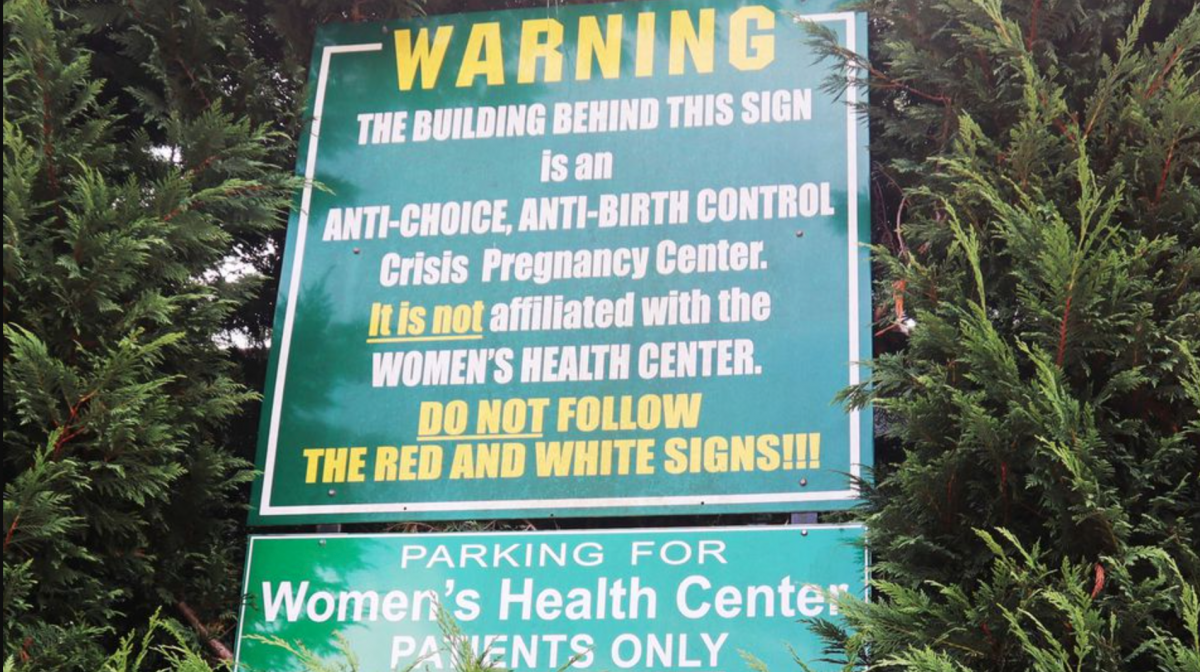
Did you mainly talk to one person with first-hand experience when interviewing people for this article?
I talked to one person who had first-hand experience, and the other sources in my story were experts, doctors, whose patients had been to pregnancy centers for care and realized what was going on and left. I spoke to a lot of health law professors because I wanted to make sure that we understood the regulation part of this. What happened is these centers were providing free items and services, but in the last 20 years or so have medicalized and seen the advantages of using ultrasounds as a way to get women in the door and to convince people to keep their pregnancies. But while this is happening, regulation isn’t keeping up. So we really wanted to understand what that meant, what that looked like. I was able to do an analysis of pregnancy center websites and publicly available materials for 27 states.
I saw and looked at one of the resources that you had linked that shows fake clinics across the U.S. and was shocked to see how many clinics are and how little people know about them.
Yeah, they’re pretty much in every state. We wanted to look at all of the available materials online and look at how they are marketing themselves, how many of them say that they offer medical services, and how many post their staff on their websites (we found that a majority don’t). So that just sort of illustrates the lack of transparency going on at these centers.
Since you started looking into the restrictions have you seen any changes in clinics being required to be correctly licensed or has there really not been any change?
Not yet, the story came out a little over a month ago. We are working on a second story right now that should be published this week. When I was reporting on the story I did see a lot of articles from other outlets talking about either local governments or states that were considering passing consumer protection laws that target pregnancy centers. In my piece, we talk about how LA has passed a similar ordinance and the state of Connecticut also passed a consumer protection law, so it is something that a lot of jurisdictions are looking into especially post-Dobbs, because there is going to be a limited amount of reproductive health services and that is something that the pregnancy center movement is keenly aware of.

When you were researching were there any specific challenges that you faced when researching this topic? Did you receive any backlash from people who support anti-abortion pregnancy centers?
Honestly, the hardest part was working on the analysis because we looked at close to 1,700 pregnancy centers. I think that was the biggest challenge because this hadn’t been done before, like really digging into how these centers market themselves to patients and to the public. Putting together that data was extensive and took months and it required looking at a lot of different materials and organizing them. But I think in the end it was worth it because we got a good sense of what this movement’s strategies and priorities are and we were able to confirm that medical services are a big part of what they’re doing now and what they will continue to do in the future, especially post-Dobbs. The data part of it was definitely the biggest lift, but I think it served as a really important part for the piece.
Do you think that there is any potential for the laws in Florida to be changed going forward?
I think that given the climate right now and the Florida legislature, Florida’s definitely a conservative state right now and a majority of lawmakers are supportive of pregnancy centers and the anti-abortion movement so I don’t anticipate monumental shifts in Florida. That being said, this is an issue that cities can tackle as well and have been tackled by cities in other states. So that is likely a possibility, but as of right now, everything in Florida is kind of at a standstill.
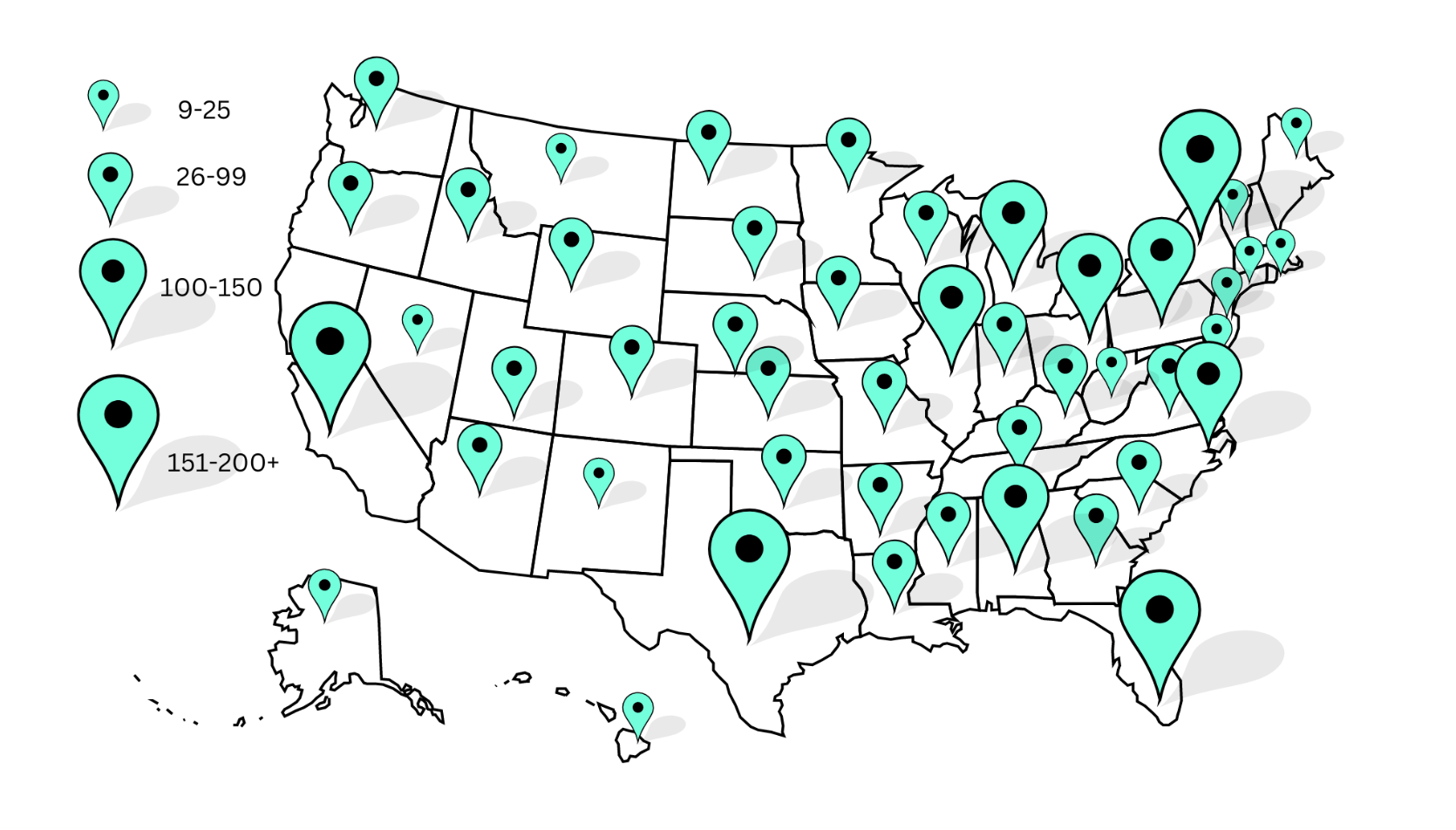
Following this article, Morel released another article further discussing the dangers of these pregnancy centers. Check it out here.
